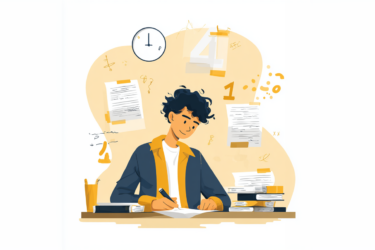“Steal Like an Artist” is not only a famous book title but an actual approach creators tend to implement, often unintentionally. It is astonishing how many legendary musicians have not only been accused of echoing someone’s songs in their creations but also been brought to court for blatant plagiarism.
Well, if even the Beatles and Madonna are susceptible to picking someone’s ideas, other content creators would definitely want to use a reliable plagiarism checker to ensure originality before they publish their work!
Getting this little piece of advice, let’s see what famous songs were (allegedly) plagiarized.
“Get Free” by Lana Del Rey
“Get Free,” the song released in 2017 as part of Lana Del Rey’s fifth album, in 2018 became the cause of legal action against the singer. According to Del Rey’s Twitter, the famous English band Radiohead accused her of plagiarising their 1992 hit “Creep” and asked for 100% publishing royalties. In her turn, Lana Del Rey denied that Radiohead’s song inspired her “Get Free” and offered 40% royalties. The conflict resulted in an undisclosed settlement.
Ironically, Radiohead themselves were accused of plagiarism for this very song. It turned out the musicians took elements from Albert Hammond and Mike Hazlewood’s 1972 melody “The Air That I Breathe.” Radiohead acknowledged the borrowing, credited Hazlewood and Hammond as cowriters, and paid royalties, but did that only after legal action had been taken.
“Shape of You” by Ed Sheeran
The best-selling 2017 song, “Shape of You” by Ed Sheeran, contains an interpolation of TLC’s “No Scrubs” melody. The musician added it consciously, wanting the song to sound more R&B. However, the negotiations regarding interpolating the 1999 hit were not finalized until “Shape of You” was released. As a result, Ed Sheeran paid royalties and mentioned Kandi Burruss, Tameka “Tiny” Cottle, and Kevin “She’kspere” Briggs as co-writers.
“Anybody Seen My Baby?” by The Rolling Stones
“Anybody Seen My Baby?” by the legendary Rolling Stones rock band is a vivid example of unintended plagiarism. The vocalist Mick Jagger and guitarist Keith Richards, who composed the song, had to add writing credits for k.d. lang and Ben Mink, as the song’s chorus appeared similar to lang’s “Constant Craving” hit of 1992.
According to Richards’ autobiography “Life,” the Rolling Stones musicians had never heard “Constant Craving” before writing their song. He describes the moment they discovered the similarity in the book, “My daughter Angela and a friend were at Redlands, and I was playing the record, and they start singing this totally different song over it. They were listening to k.d. lang’s ‘Constant Craving.’ It was Angela and her friend that recognized it.”
Rolling Stones gave writing credit to lang, who was reported to be “completely honored and flattered” by the gesture.
“Erotica” by Madonna
One of Madonna’s hits cost her $2.5 million. In the track, the singer used “El Yom ‘Ulliqa ‘Ala Khashaba” by Lebanese singer Fairuz as part of the spoken-word vocals. After the track was released in September 1992, Fairuz stated that she hadn’t given permission to use her vocals. According to the Lebanese singer, the lyrics “He was crucified today” in Arabic were taken from a religious song traditionally heard during Good Friday services. The lawsuit was settled out of court. However, both the single and the album “Erotica” were banned in Lebanon.
“Ice Ice Baby” by Vanilla Ice
American rapper Vanilla Ice did not give credit for the bassline melody until “Ice Ice Baby” became popular in 1990. It turned out Vanilla Ice, K. Kennedy, and DJ Earthquake, the authors of “Ice Ice Baby,” used “Under Pressure” by Queen and David Bowie for their hip-hop hit. So Queen and Bowie’s representatives had to threaten the rapper with a suit before he paid financial recompense and mentioned Bowie and Queen as co-songwriters. The rapper admitted using “Under Pressure,” saying he got inspiration from mixing rock and hip-hop.
“Whatever” by Oasis
The song used in Coca-Cola and Vodafone commercials was released by Oasis in 1994. “Whatever” was written by the band’s lead guitarist, Noel Gallagher, and caused a copyright infringement lawsuit. Neil Innes claimed Oasis borrowed a portion of the melodic line of his “How Sweet to Be an Idiot” song. As a result of the lawsuit, Innes was credited as co-songwriter. Notably, the part of the melody causing the case is just the eight notes of the song.
“Levitating” by Dua Lipa
English-Albanian star Dua Lipa recorded “Levitating” in 2018 and released it in 2020. In 2022, Artikal Sound System band filed a lawsuit against Lipa and her label, accusing them of plagiarizing the song “Live Your Life,” released in 2017. The reggae band stated the song producers knew “Live Your Life” before the “Levitating” release.
Moreover, the same year, songwriters L. Russell Brown and Sandy Linzer claimed that Lipas’s hit had similarities to the 1979 “Wiggle and Giggle All Night” by Dr. Buzzard’s Original Savannah Band.
However, Dua Lipa’s attorneys proved she was unaware of both songs before composing “Levitating.” The claimants were moved to drop the suit, and in this case, if unintended plagiarism even took place, it didn’t entail legal consequences.
“New Slaves” by Kanye West
The coda in Kanye West’s “New Slaves” features “Gyöngyhajú lány” by Gábor Presser, a Hungarian composer who sued the American rapper in 2016. “New Slaves,” released in 2013, includes singing over the “Gyöngyhajú lány” written by Hungarian rock band Omega in 1968-1969. The song’s composer stated that although West asked permission to use the sample and paid a deposit towards the alleged agreement, the check was never cashed. As a result of the lawsuit, West reached an out-of-court agreement with Presser.
“Viva la Vida” by Coldplay
If there were a contest for the song accused of being plagiarised for the most amount of times, Coldplay’s “Viva la Vida” would have all the chances to win.
The Creaky Boards band accused Coldplay of plagiarising the melody of “The Songs I Didn’t Write,” even making a clip comparing the two songs. Coldplay’s spokesman managed to prove the inconsistency of the claim. So Creaky Boards retracted the accusations.
In 2008, Joe Satriani stated that “Viva la Vida” contains portions of his 2004 “If I Could Fly”. According to Coldplay, all the similarities were accidental, and eventually, the case was dismissed – potentially, Satriani and Coldplay musicians agreed on an out-of-court settlement.
In 2009, the British musician Yusuf Islam claimed that “Viva la Vida” is similar to his “Foreigner Suite” song. Coldplay musicians declined the claim, and later, Islam said he supposed that unintended plagiarism took place.
In 2011, American music professor Dr. Lawrence Ferrara drew the line under the accusations with a comparison of “Viva la Vida,” “If I Could Fly,” and “Foreigner Suite” melodies to 1736 “Se tu m’ami” by the Italian composer Giovanni Battista Pergolesi. He showed the similarities between the melodies’ structures and offered to consider the work as “the public domain.”
“You Are Not Alone” by Michael Jackson
“You Are Not Alone” was written by R. Kelly for Michael Jackson in 1994. The composition has become a Guinness World Record as the first song to debut at number one on the Billboard Hot 100 and topped the charts of numerous countries.
Following the song’s success, Edward and Daniel van Passel from Belgium filed a suit claiming that “You Are Not Alone” is similar to the “If We Can Start All Over” song they registered with the Belgian Society of Authors, Composers and Publishers in 1993, but never released commercially.
The court found 43.46% similarity between the melodies, considering it a coincidence. In 2007, the Court of Appeal in Brussels concluded that the song could be plagiarised, which led to the ban of “You Are Not Alone” music and video on all Belgian radio and television broadcasts and the van Passel brothers being recognized as the co-authors of the famous ballad in Belgium.
Bonus Track: “Come Together” by the Beatles
Coldplay vocalist Chris Martin once said, “For some reason, God only knows why, the successful songs seem to be the ones that are accused of being stolen.” It seems that the legendary Beatles can confirm this idea. In 1969, Big Seven Music accused John Lennon of plagiarising Chuck Berry’s “You Can’t Catch Me” song both musically and regarding some lyrics.
The suit was settled out of court, and as a result, Lennon promised to compensate by recording three songs for the new album with Big Seven Music. As the third song hadn’t been released before Lennon’s death, the owner of Big Seven Music, Morris Levy, sued Lennon for the breach of contract and got $6,795.
In her book “Big Magic,” Elizabeth Gilbert described a concept of ideas traveling from artist to artist in search of someone to implement them. The numerous examples of unintended plagiarism in music seem to prove it!
Here are some experience-based strategies to help you boost your skills, evade plagiarism, and enjoy the process and the result of writing!
1. Explore the sources
Original ideas are the key to original writing. So, rule number one: never limit yourself to one source of information. Even if your paper is based on some concepts and you need to consult the books, always look for different angles on the problem. This way, you can compose a proper research paper rather than retell the content of one article. Analyzing and explaining the subject of your writing in your own words will definitely sound more authentic than paraphrasing somebody’s work.
2. Discover your truth
Key number two: bring value. Your individuality is the unbeatable contributing factor that makes your paper original, as literally no one else can share your experience. You can operate with facts and somebody’s concepts and theories if your task requires that, but a personal touch is always what makes the difference. Think of what fresh ideas you can add to your writing and what examples from your experience, reflections, or thoughts can enrich the work. Develop your writing style so it will be distinguishable among hundreds of others. It’s not only about essays but your personality: find your voice, and don’t be shy about speaking your truth! Then, your writing will always be inimitable, just as you are.
3. Cite and attribute
It’s okay to quote someone; it’s plagiarism if you don’t attribute. The copying problem is not exactly in using some sources but in passing someone’s ideas for one’s own. Honesty is the answer: if you implement somebody’s work, recognize it.
- Maintain the balance – it is appropriate and even necessary to reinforce your ideas with some citations and facts, but you better not turn the whole work into the quotes collection.
- Take notes regarding the sources right away while researching to provide proper attribution and avoid unintended plagiarism. You will say thank you to yourself once you have a ready Reference List instead of chaotic citations and your drafts to sort out.
- Use a citation generator to attribute the sources according to the needed style and your professor’s requirements.
4. Invite AI to help overcome writer’s block
Sometimes, fresh ideas require brainstorming. At the same time, our mind is not always fresh enough to sparkle with revelations and concepts. In this case, we can ask AI for a little push. Let us be clear: we do not encourage you to generate your writing by Chat GPT. Moreover, we are convinced such usage violates academic integrity and relates to serious infringements. However, AI can be a good companion in search of inspiration: you can ask for ideas on composing a catchy introduction or wrapping up the subject to make it novel. Please mind that you should not copy-paste the AI-generated text as it cannot be considered original. Moreover, the Chat GPT detector can trace machine-written content, and your assignment will be discarded. So, use AI prompts in search of ideas, and then put your creativity into action.
- You can and should cite Chat GPT in the reference list: be clear about the source of the information, and it will not be considered academic cheating.
- Be sure to double-check any facts you get from a chatbot. Their accuracy is constantly increasing but you still should verify the information, and never take it for ultimate truth.
- Modern chatbots can provide the sources if asked. However, you should double-check whether they contain the data in question, as sometimes AI mentiones made-up or unrelevant sources. If the resource is legit, you can study it for more details, and use it as a reference.
We have created PlagiarismCheck.org to let you check plagiarism in a few clicks and seconds. Insert any text – yes, even a song lyrics! – and get hints on improving your writing and boosting your creativity in no time. Try our innovative AI detector and plagiarism detector now for free!






